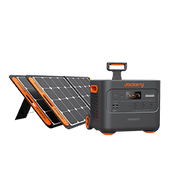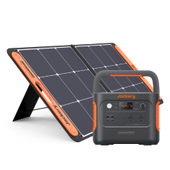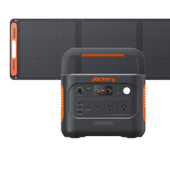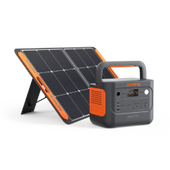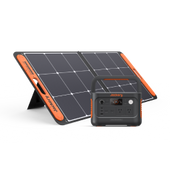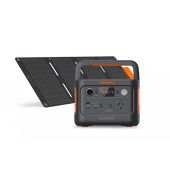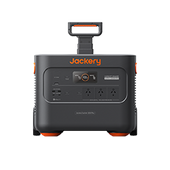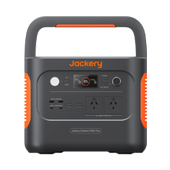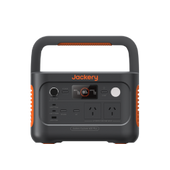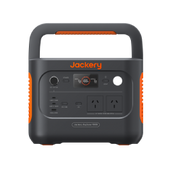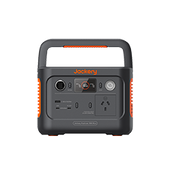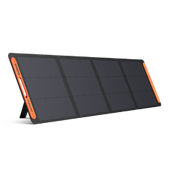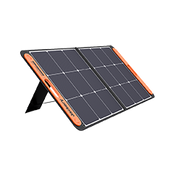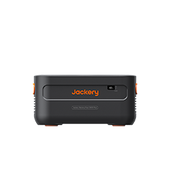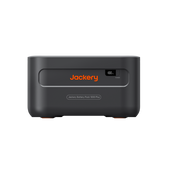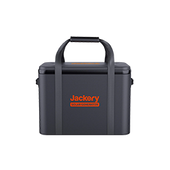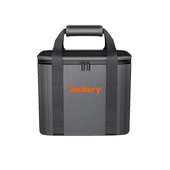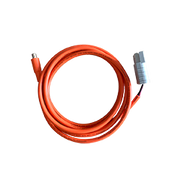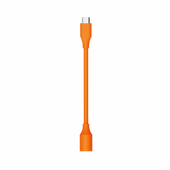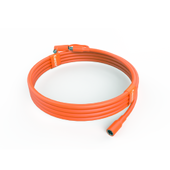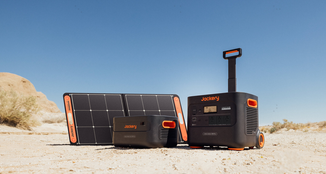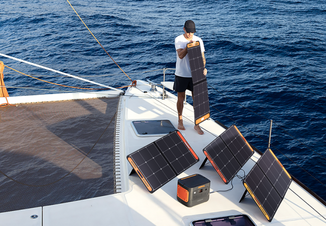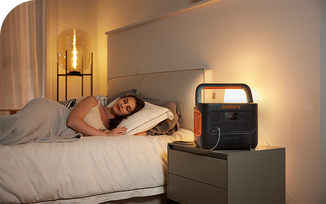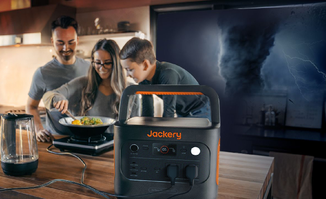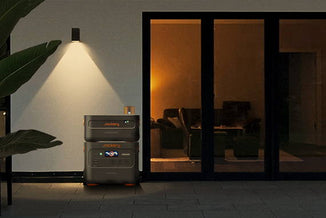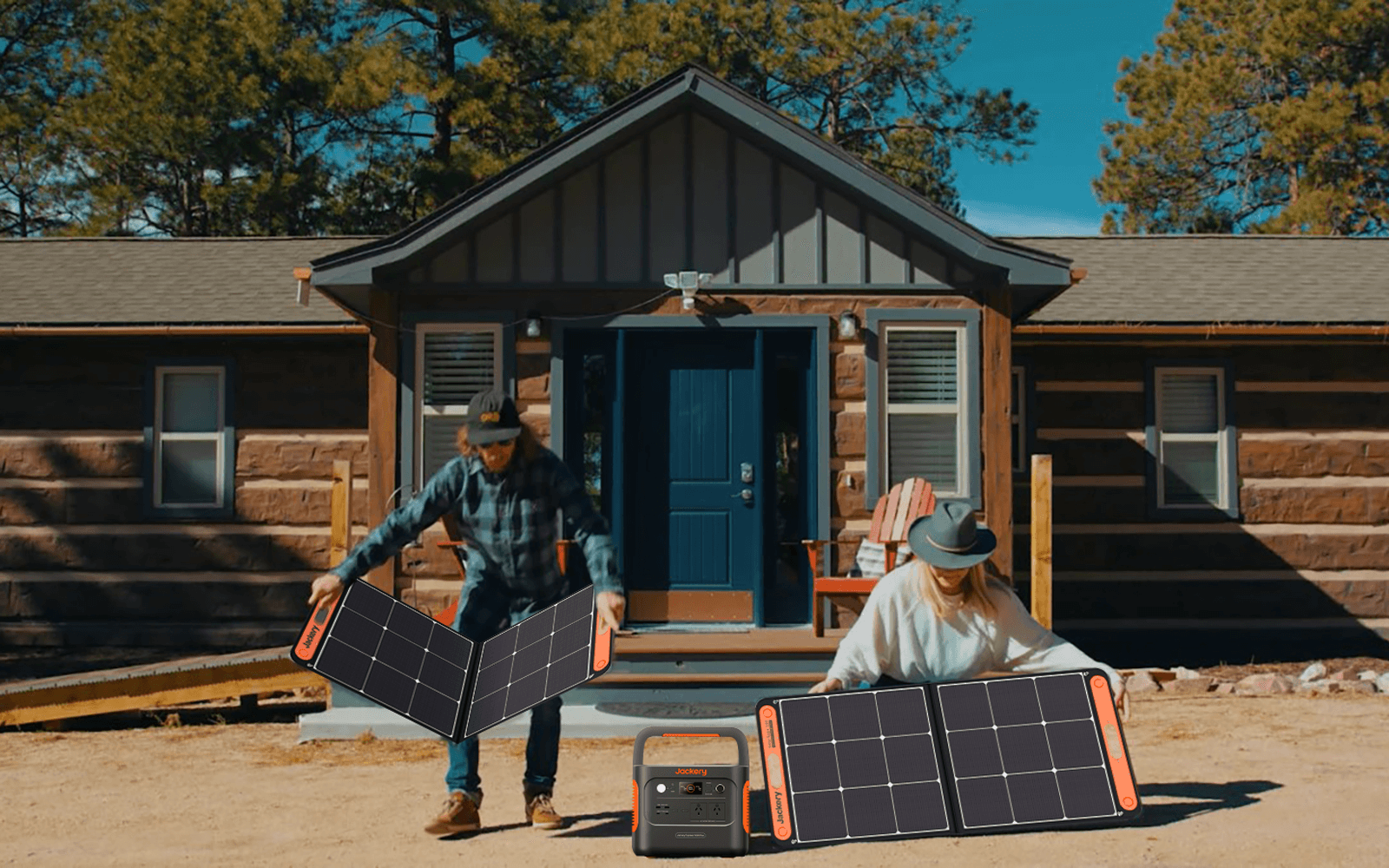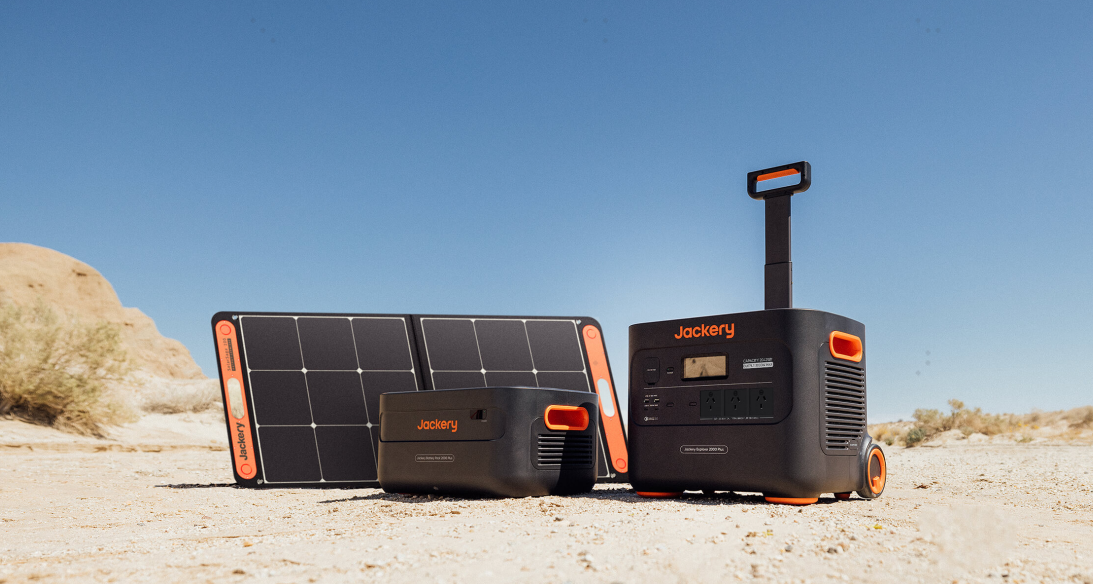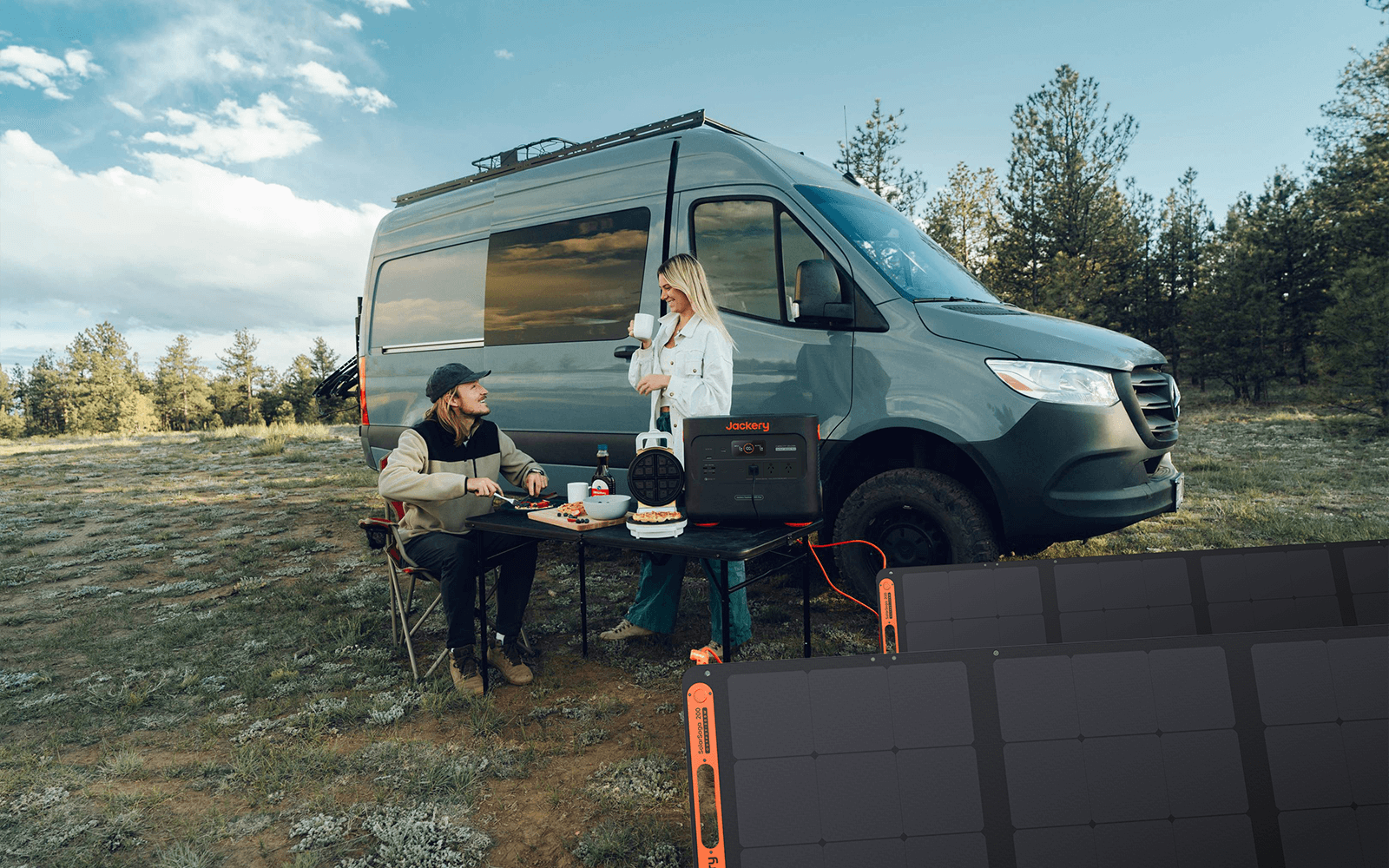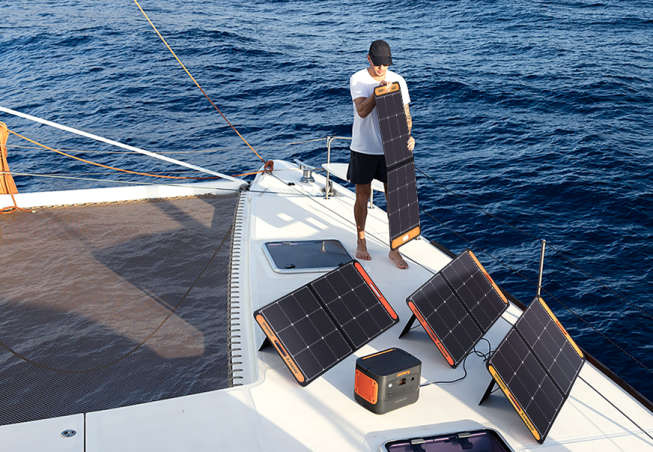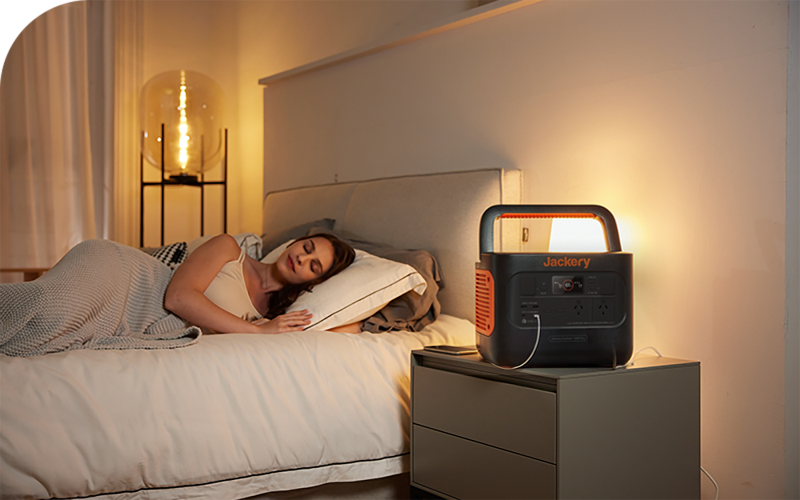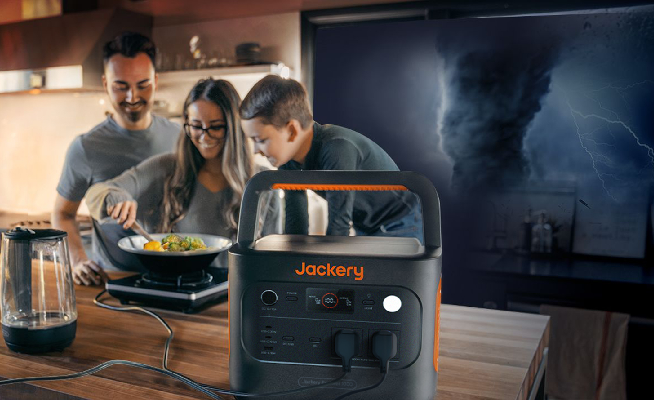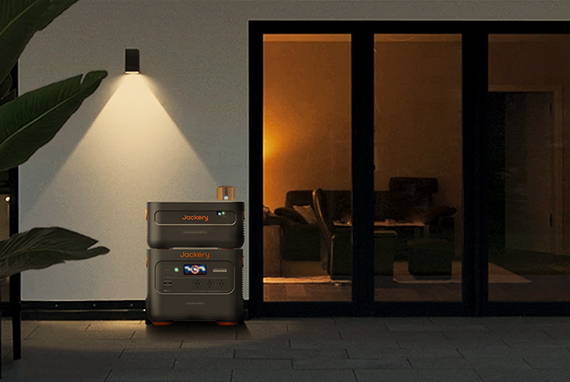Batteries are an excellent modern-day resource; they power everything from cell phones to wireless automatic cleaners to various types of computers. Different kinds of batteries serve many other purposes, but the two we hear about the most are lithium and lithium-ion batteries.
You may have had to choose between these two battery types in the past, but do you understand what they are? To get the most out of your batteries, discover more about lithium and lithium-ion batteries on this page, including what a lithium battery is, its benefits and drawbacks, how it works, and more. Furthermore, Jackery Portable Power Stations used high-quality lithium-ion batteries to store and generate more solar energy.
Lithium batteries provide a notable charge density, hence demonstrating an extended lifespan and enhanced capacity for power retention in comparison to alternative battery technologies.
Lithium batteries have many advantages, such as high energy level, compact size, consistent voltage, high charge current, and more. However, they still have some drawbacks, like degradation.
There are four components - cathode, anode, electrolyte, and separator to take effect in a lithium battery.
Lithium batteries can be classified into six types, including LiFePO4, lithium cobalt oxide, lithium nickel manganese cobalt oxide, lithium manganese oxide, lithium nickel cobalt aluminum oxide, and lithium titanate.
Jackery Portable Power Stations adopt first-rate lithium batteries to ensure a stable and constant power supply. We highly recommend Explorer 2000 Pro, 1000 Pro, 500, and 240 for indoor and outdoor uses.
What Is A Lithium Battery?
Every battery has three essential components: an anode (negative - side), a cathode (positive + side), and an electrolyte. When a battery's cathode and anode are connected to an electrical circuit, a chemical reaction between the anode and electrolyte occurs.
And what exactly is a lithium battery? Because lithium batteries are primary cell batteries, they cannot be refilled once they are depleted. As an anode, they employ the metal lithium. Lithium batteries provide a notable charge density, hence demonstrating an extended lifespan and enhanced capacity for power retention in comparison to alternative battery technologies. Lithium batteries, depending on their design, can provide electricity at voltages ranging from 1.5 to 3.7 V. The metal used in lithium batteries is highly reactive; pure lithium will react instantaneously with water and even airborne moisture.
Many electrical equipment, from electric toy cars to full-sized vehicles, require lithium batteries. Although their large power capacity makes them extremely helpful, the fact that they cannot be readily or even securely recharged has caused many businesses to explore alternatives.
What Is A Lithium-Ion Battery?
Because lithium-ion batteries are secondary cells, they can be recharged and reused. These batteries are highly prevalent today, and our lives would be drastically different without them. Lithium-ion batteries power your laptop, cell phone, tablet, and camera, and these rechargeable batteries are incredibly efficient.
Lithium-ion batteries are also excellent at retaining charge, losing just about 5% of their capacity each month they are not used. Another advantage of lithium-ion batteries is that they do not have a memory effect. Unlike a standard Lithium battery, lithium-ion batteries are highly sophisticated. A lithium-ion battery has numerous lithium-ion cells that store and provide power.
The throwaway batteries that many of us use in our homes are bad for the environment, so many people and businesses prefer to utilize lithium-ion batteries, such as Jackery Portable Power Stations.
What Are The Pros & Cons of A Lithium Battery?
A lithium battery is a rechargeable battery that utilizes the distinctive properties of lithium, which is recognized as the lightest metallic element. It has numerous benefits:
Energy Level: Lithium batteries can provide energy at any level needed for RV use. If your inverter has enough capacity, you may run almost all of your RV's electrical appliances simultaneously if necessary. The amp-hour (Ah) power you need equals the total amount of energy you want to store and draw from.
Compact Size: Lithium batteries hold three to four times the electrical energy of comparable size and weight of traditional batteries. This is a significant advantage for camper trailers, caravans, campervans, and smaller motorhomes, often with limited room and weight-carrying capabilities. However, it is less advantageous for converted coaches. Most can easily handle the weight and volume of a 400-750 Ah AGM battery bank that can handle even heavy RV loads for a fraction of the expense.
Consistent Voltage: As they deplete, all traditional deep-cycle batteries (AGMs) lose voltage. This is generally between 12.75 and 11.4 volts. As the load increases, so does the voltage. However, lithium batteries will keep a relatively consistent voltage independent of load. In practice, that value will likely range between 13.1 and 12.9 volts.
High Charge Current: While even AGM batteries are limited to roughly 25-30% of their capacity, lithium batteries can take 100%-200% regularly. While useful for individuals with 100 Ah or less, the charging source will always be a limitation with RVs. Lithium batteries charge faster, last longer, and have a higher power density than traditional battery technology, resulting in more battery life in a smaller container.
Everyone should be aware of the following lithium battery risks and concerns:
Degradation: Degradation begins as soon as they are dispatched from the plant. As a result, most lithium batteries are only intended to last two to three years from the time they are manufactured.
Risks: These batteries have a flammable electrolyte that can cause small-scale battery fires. It was observed in the Samsung Note 7, and the producers were forced to halt further manufacturing and production.
How Does A Lithium Battery Work?
The cathode, anode, electrolyte, and separator are the four significant components of lithium batteries. Every element of a Li-ion battery is necessary since the battery cannot function if one of them is missing.
Cathode: The chemical reactions of lithium in a lithium-ion battery generate electricity. This is why lithium is introduced into the battery, and the space for lithium is known as the cathode. However, because lithium is an unstable element, the mixture of lithium and oxygen, lithium oxide, is employed as a cathode. A thin aluminum foil used to hold the cathode's frame is coated with a composite of active material, conductive additive, and binder if you look closely at the cathode.
Anode: The anode substrate, like the cathode, is covered with active material. The anode's active material facilitates the passage of electric current across the external circuit while simultaneously enabling the reversible absorption and emission of lithium ions generated by the cathode. In the process of battery charging, it is observed that the lithium ions tend to be stored in the anode rather than the cathode.
Electrolyte: When discussing cathode and anode, it was said that lithium ions go through the electrolyte, whereas electrons move through the wire. This is essential for storing electricity in a battery. If ions move through the electrolyte, we cannot use power, and our safety will be jeopardized.
Separator: While the cathode and anode determine fundamental battery performance, the electrolyte and separator determine battery safety. The separator acts as a physical barrier between the cathode and anode. It blocks direct electron passage and allows only ions to pass through the interior tiny hole.
What Are The Types of Lithium Batteries?
To store energy, different types of lithium batteries use other active materials and chemical reactions. Each type of lithium battery has advantages and disadvantages, as well as uses that are best suited to it. The names of the various lithium battery types are derived from their active ingredients.
Type 1: Lithium Iron Phosphate (LiFePO4)
Phosphate is the cathode material in lithium iron phosphate (LFP) batteries, and a graphitic carbon electrode serves as the anode. LFP batteries have a long life cycle and excellent thermal and electrochemical performance. The nominal voltage of LFP battery cells is 3.2 volts; therefore, putting four of them in series results in a 12.8-volt battery. As a result, LFP batteries are the most frequent form of lithium battery used to replace lead-acid deep-cycle batteries—for example,
Jackery Explorer 2000 Plus or
300 Plus, which uses LiFePO4 battery to store more energy.
Type 2: Lithium Cobalt Oxide
LCO batteries exhibit a high specific energy. However, their particular power is comparatively low. It means they function poorly in high-load situations, but they can produce energy over an extended period. LCO batteries were widely used in small portable gadgets such as laptops, cell phones, tablets, and cameras. However, due to the cost of cobalt and safety issues, they are losing popularity to alternative forms of lithium batteries.
Type 3: Lithium Manganese Oxide
The cathode material of lithium manganese oxide (LMO) batteries is lithium manganese oxide. This chemical produces a three-dimensional structure that improves ion flow, decreases internal resistance, and increases current handling while also enhancing thermal stability and safety. LMO batteries can be found in a variety of portable power tools, medical instruments, and hybrid and electric automobiles.
Type 4: Lithium Nickel Manganese Cobalt Oxide
NMC batteries combine the advantages of the three main cathode elements: nickel, manganese, and cobalt. Nickel has a high specific energy yet is unstable. Although manganese is highly stable, it has a low specific energy. Combined, they provide a stable chemical with a high specific power. NMC batteries, like LMO batteries, are widely used in power tools and electronic powertrains for e-bikes, scooters, and some electric automobiles.
Type 5: Lithium Nickel Cobalt Aluminium Oxide
NCA batteries have a high specific energy-to-weight ratio, an excellent specific power-to-weight ratio, and a long lifecycle. This implies they can provide a high current for extended periods. NCA batteries are prominent in the electric car sector due to their ability to function in high-load applications while maintaining long battery life. Specifically, NCA is Tesla's preferred battery.
The chemical composition of the cathode material differs between the previous lithium battery types we discussed. LTO batteries use LMO or NMC as the cathode chemistry and substitute graphite in the anode with lithium titanate. As a result, the battery is exceptionally safe, has a long lifespan, and charges faster than any other lithium battery type. LTO batteries are used in a variety of applications. Among the applications are electric vehicles and charging stations, uninterrupted power supply, wind and solar energy storage, solar street lights, telecommunications systems, and aerospace and military equipment.
What Are The Applications of Lithium Batteries?
There are no limitations to the usage of lithium-ion batteries in the real world because they have been tested and used in portable electronics or small devices such as mobile phones, laptops, energy storage systems, camcorders, and even electric vehicle batteries. The following are the most common uses for lithium batteries:
Solar Power Storage: Because of its quick charge process and charging method, lithium batteries are an excellent choice for solar panels, allowing you to maximize the potential power storage from the sun daily.
Portable Power Stations: It has already been demonstrated that lithium batteries perform well in powering our laptops, PCs, and phones. In addition, they are smaller and lighter than lead-acid batteries. Because of specialized lithium battery alternatives, such as
Jackery Portable Power Stations, transitioning from old technology to a more effective portable power pack is simple.
Alarm Systems: The lack of hard-wired electricity limits most people's security. However, you can securely monitor any location you desire with a lithium-ion battery-powered alarm or surveillance system.
Emergency Power Supply: Because lithium batteries are known for efficiently storing energy, they are an excellent choice for a UPS or emergency power backup to protect you from power instability or loss.
Jackery Portable Power Stations with Lithium-Ion Batteries
Jackery is a well-known manufacturer of high-quality solar goods, including the Jackery Portable Power Station. It is intended to encourage investigation. Compared to alternatives, it is up to 30% lighter and smaller. It has an ergonomic handle design makes it easy to carry anywhere you want to explore. Jackery offers portable power solutions ranging from 240W to 2000W and can power up to 99% of equipment, such as refrigerators, TVs, CPAP machines, lights, and more.
Go camping and use the power station once a week for 20 years. You can keep up to 80% of the battery's maximum capacity by utilizing high-quality lithium-ion batteries. These power stations have more considerable capabilities that can operate many home appliances for several hours or days.
Jackery Portable Power Stations use lithium batteries to provide consistent and stable power to essential appliances. By connecting
Jackery Solar Panels to Jackery Portable Power Stations, the
Jackery Solar Generator maximizes solar energy utilization. They also employ advanced BMS and pure sine wave inverters to provide smooth and reliable power delivery.
With a battery capacity of 2160
Wh and an output power of 2200W, the Jackery Explorer 2000 Pro can power up to seven devices at once. Explorer 2000 Pro meets all your power needs when camping and during power outages. The best option is because of its unique features, such as quick charging in 2 hours via AC input, all-around safety with industry-leading BMS, and an intelligent, bright screen.
Jackery Explorer 2000 Pro
The Jackery Explorer 2000 Pro portable power station can survive for up to ten years if used twice each week. It has a standby capacity of 100% for over 365 days, making it an incredibly dependable power supply for home backup. The 19.5-kilogram power station incorporates a foldable handle for easy portability.
Solar energy can be stored in the Explorer 2000 Pro portable power station, which includes a lithium-ion battery, MPPT solar charge controller, and pure sine wave inverter to provide a stable and consistent electrical supply. It can power a 200W TV for 8.4 hours and a 750W microwave for 2.2 hours, for example.
Explorer 2000 Pro Portable Power Station
1000 cycles to 80%+ capacity
Explorer 2000 Pro + 6*SolarSaga 100W: 5.5H
AC Adapter: 2H
12V Car Adapter: 24H
2*AC Output: 230V, 2200W (peak 4400W); 2*USB-A: Quick Charge 3.0x2, 18W Max; 2*USB-C: 100W Max, (5V, 9V, 15V, 12V, 20V up to 5A); 1*Carport: 12V⎓10A
TV(200W): 8.4H
Refrigerator(700W): 2.4H
Microwave(750W): 2.2H
Coffee Maker(800W): 2.1H
Blender(300W): 5.6H
Stove(850W): 2H
With an utterly compatible power station, the Jackery Explorer 1000 Pro Portable Power Station can power many devices at the same time! The 1000w portable power station, with a battery capacity 1002Wh, keeps your electrical equipment charged during camping and power outages. It has an industry-leading BMS, 94V-0 fire-grade material,
pure sine wave technology, and a folding handle, all while weighing only 11.5kg.
Jackery Explorer 1000 Pro
The Explorer 1000 Pro portable power station has two 1000W AC output outlets, two USB A connectors, and one DC vehicle port. It can power up to 93% of your household equipment, such as an electric radio, refrigerator, phone, computer, and other electronics. For example, in an emergency, it can power a 200W computer for 4 hours, sufficient for work or other uses. It can also power a 100W CPAP machine for 8 hours.
The foldable handle simplifies transit and storage. Because of its lightweight design and 1,000-charge cycle life, this portable power source is excellent for camping vacations. A pure sine wave inverter supplies consistent power to your electronics. In this ultra-quiet (46dB) product, a battery management system (BMS) checks and preserves the battery life.
Explorer 1000 Pro Portable Power Station
1000 cycles to 80%+ capacity
Explorer 1000 Pro + 6*SolarSaga 80W: 9H
AC Adapter: 1.8H
12V Car Adapter: 12H
2*AC Output: 230V, 1000W, peak 2000W; 2*USB-A: Quick Charge 3.0x2, 18W Max; 2*USB-C: 100W Max, (5V, 9V, 15V, 12V, 20V up to 5A); 1*Carport: 12V⎓10A
TV(200W): 4H
Fridge(500W): 1.6H
Blender(300W): 2.7H
CPAP Machine(100W): 8H
Computer(200W): 4H
Electric Wheelchair(380W): 2.1H
The Jackery Explorer 500 Portable Power Station charges low to high-power appliances for extended periods. The power station is suitable for outdoor adventurers and emergency home backup solutions, with a high battery capacity of 518Wh, a foldable handle, industry-leading BMS technology, and an ergonomic design. With a weight of about 6.4 kg, it is incredibly portable.
The Jackery Explorer 500 Portable Power Station has 1*AC outlet, 2*DC connections, 1*vehicle port, and 3*USB-A ports for charging low to high-power items such as your phone, lights, fan, and more. It can, for example, power a The power station's small size and lightweight design make it perfect for road trips and RV camping.
You'll never have to worry about finding a power outlet to recharge your Jackery Explorer 500 Portable Power Station again. Other charging solutions, such as solar panels, automobile plugs, or electric generators, ensure that you can charge your gear anywhere, at any time. The Jackery Explorer 500 Power Station's main feature is its lengthy battery life.
Explorer 500 Portable Power Station
800 cycles to 80%+ capacity
Explorer 500 + 1*SolarSaga 100W: 9.5H
AC Adapter: 7.5H
12V Car Adapter: 7.5H
1*AC Output: 240V, 500W (peak 1000W); 2*DC Output: 12V⎓7A; 3*USB-A: 5V⎓2.4A; 1*Carport: 12V⎓10A
Phone(10W): 44H
TV(60W): 7.3H
Fan(100W): 4.4H
Lighting(25W): 17.6H
Speaker(120W): 3.7H
Computer(200W): 2.2H
The Explorer 240 Portable Power Station from Jackery is an appropriate power supply source for compact electronics. The 240Wh lithium-ion battery pack powers the Jackery Explorer 240 Portable Power Station. The multifunctional outputs, which include 1*AC outlet, 1*DC vehicle port, and 2*USB-A ports, along with a pure sine wave inverter, allow you to charge several devices simultaneously.
The Explorer 240 power station weighs 3 kg and may be taken on walks, camping vacations, cottage trips, park visits, or wherever the weekend takes you. Its sleek and attractive design, along with improved safety measures, makes it campers' first pick.
Professional
MPPT technology allows for faster solar recharge rates; with a
SolarSoga 100W solar panel, the Jackery Explorer 240 can be charged in 5.5 hours. A wall outlet, generator, or automobile outlet can also power the portable solar solution. The Jackery Explorer 240 Portable Power Station's industrial-grade Lithium Nickel Manganese Cobalt Oxide (NMC) battery has a long battery life. The intelligent display shows the input/output power and remaining battery life, making it simple to assess the battery's health.
Explorer 240 Portable Power Station
1000 cycles to 80%+ capacity
Explorer 240 + 1*SolarSaga 100W: 5H
AC Adapter: 5.5H
12V Car Adapter: 6.5H
1*AC Output: 230V, 200W (peak 400W); 2*USB-A: 5V⎓2.4A; 1*Carport: 12V⎓10A
Light(5W): 21H
Camera(8.4W): 10 Charges
Bluetooth Speaker(10W): 16.5H
Phone(18W): 14 Charges
Drone(90W): 4.5 Charges
Electric Blanket(55W): 4H
Is A Lithium Battery Worth It?
Lithium batteries are the preferable alternative for powering gadgets that require a lengthy battery life. Watches, film cameras, pacemakers, hearing aids, remote controls, calculators, and smoke alarms are some examples. All of these things require a long-lasting source of power that does not require a constant connection to mains power. Therefore, a lithium battery is an excellent solution.
Both lithium and lithium-ion batteries are handy and significantly contribute to most people's daily lives. Their uses are limitless, ranging from life-saving medical equipment to remote-controlled toy vehicles; it's difficult to picture a modern world without them. Both types of batteries provide portable power, charging a compatible electric circuit wherever you are, such as Jackery Portable Power Stations, which use high-quality lithium batteries to ensure a steady and pleasant charging experience.
Best-selling Jackery Solar Generator









